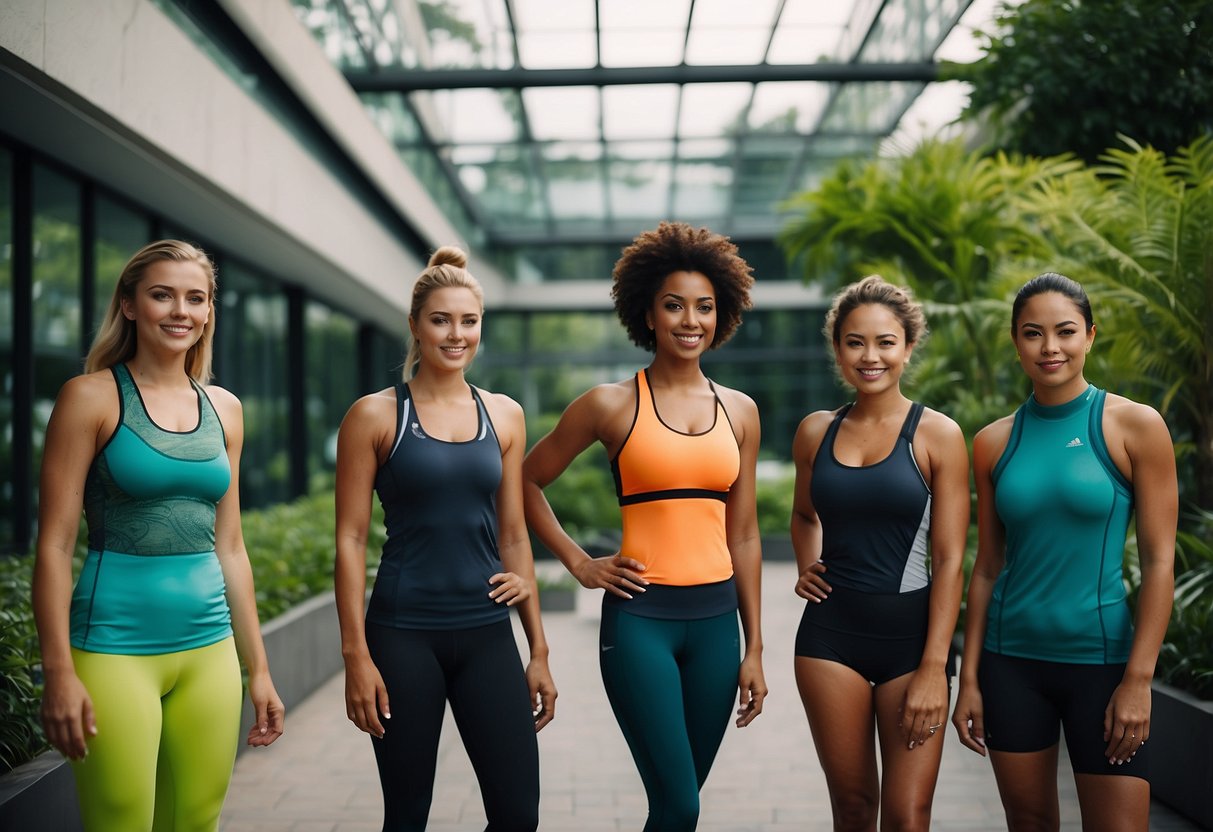
8. prAna
prAna is renowned for its commitment to sustainability in the activewear industry. This brand prioritizes eco-friendly practices by using organic cotton, recycled polyester, and other sustainable materials.
prAna’s designs are not just about being environmentally friendly. They are also stylish and functional, catering to a wide range of athletic activities from yoga to climbing.
The brand ensures fair wages and safe working conditions for all its employees. It is a member of the Fair Labor Association, which underscores its dedication to ethical manufacturing practices.
Many of prAna’s products are Fair Trade Certified, providing consumers with confidence that their purchases are making a positive impact on workers’ lives.
With a focus on durability, prAna aims to reduce waste by ensuring that their clothing lasts longer. This reduces the need for frequent replacements, aligning with sustainable consumer practices.
Their commitment extends beyond products. prAna actively engages in initiatives to reduce their environmental footprint, such as using recyclable packaging and supporting various environmental causes.
Shoppers can find a wide range of activewear options available from prAna, from leggings and sports bras to jackets and accessories, all designed with sustainability in mind.
9. Threads 4 Thought
Threads 4 Thought stands out for its commitment to sustainability and ethical manufacturing. The brand uses eco-friendly materials such as organic cotton, recycled polyester, and Lenzing Modal, which is derived from beechwood trees. These materials significantly reduce the environmental impact compared to conventional fabrics.
The company is also known for its transparency in the supply chain. They partner with factories that ensure fair wages and safe working conditions for employees. This emphasis on ethical production aligns with the growing consumer demand for responsible fashion.
Threads 4 Thought offers a wide range of activewear, including leggings, sports bras, and tops. The designs are functional yet stylish, catering to a variety of workout preferences. Their collection is versatile, suitable for both high-intensity workouts and yoga.
Innovative practices are a hallmark of Threads 4 Thought. The brand implements water-conserving techniques and renewable energy sources in its production processes. These efforts underscore their dedication to reducing their carbon footprint.
Consumers appreciate the durability and comfort of Threads 4 Thought’s products. These qualities ensure that the garments last longer, further supporting sustainable fashion practices. Their commitment to quality without compromising on sustainability sets them apart in the activewear market.
10. Beyond Yoga
Beyond Yoga is renowned for its commitment to sustainability and ethical practices. The activewear brand uses recycled polyester and other eco-friendly materials in its collections, reducing waste and conserving resources.
The company emphasizes fair labor practices, ensuring that its products are made in ethical working conditions. This attention to worker welfare sets Beyond Yoga apart in the crowded activewear market.
Their designs blend functionality and style, catering to a wide array of activities from yoga to high-intensity workouts. Customers often praise the comfort and durability of Beyond Yoga’s products.
Additionally, Beyond Yoga opts for environmentally friendly packaging, further minimizing its ecological footprint. The brand’s efforts demonstrate a comprehensive approach to sustainability, from manufacturing to delivery.
Importance of Sustainable Activewear
Sustainable activewear plays a crucial role in reducing environmental harm and meeting increasing consumer expectations for ethical products. This improvement benefits both the ecosystem and brand loyalty.
Environmental Impact
The fashion industry significantly contributes to environmental degradation. Sustainable activewear helps mitigate this impact. It uses eco-friendly materials such as organic cotton, recycled polyester, and Tencel, which reduce water consumption, carbon footprint, and chemical use.
Traditional activewear often relies on synthetic fibers derived from petroleum, leading to high energy consumption and pollution. In contrast, sustainable options aim to minimize resource usage, reduce waste, and promote recycling.
Brands are adopting practices such as waterless dyeing and biodegradable packaging. These measures ensure that production processes are more aligned with environmental conservation efforts. Small changes in manufacturing and material choices can lead to substantial ecological benefits.
Consumer Demand
Consumers are increasingly aware of the ethical and environmental implications of their purchases. This awareness drives the demand for sustainable activewear. Shoppers seek transparency about sourcing, manufacturing practices, and the overall lifecycle of the product.
Brands that prioritize sustainability stand out and attract a loyal customer base. People prefer products that not only perform well but are also produced responsibly. This trend is particularly strong among younger generations who value ethical consumption.
Transparency through certifications and eco-labels further builds trust. Brands communicate their commitment to sustainability by displaying information about material sourcing and ethical labor practices. This alignment with consumer values helps companies maintain a competitive edge in the market.



